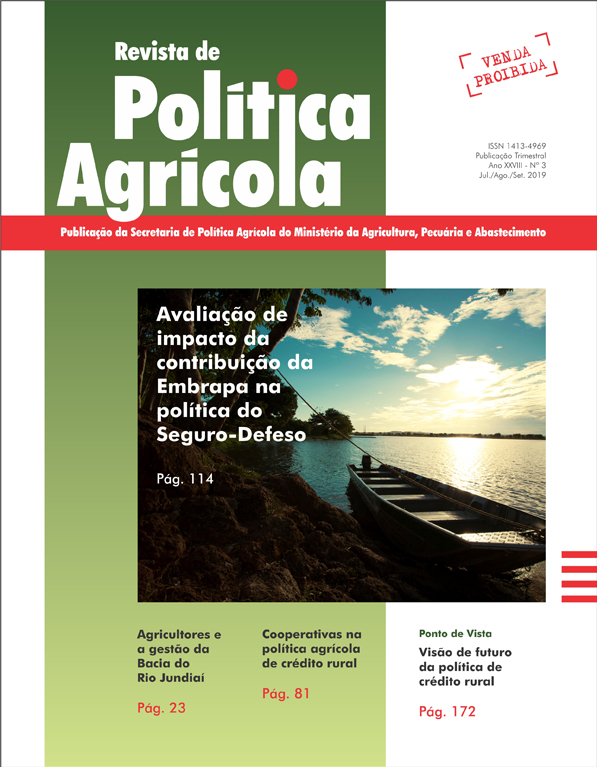Farmers and management of the Jundiaí River basin, SP
Keywords:
family farming, payment for environmental services, environmental preservation, ecosystem servicesAbstract
The advance of agriculture and urbanization in the state of São Paulo has raised the pressure on water resources. Despite advances in water management, the state faced one of the largest water crises in history, casting doubt on the effectiveness of the model. A fundamental factor for water management is the regular guarantee of ecosystem services, many of them associated with the preservation of forest cover. This paper analyzes the important role of rural producers in the crescentemanagement of water resources, analyzing the case of the Jundiaí River Basin (BHRJ), state of São Paulo. BHRJ is one of the most populous and industrialized regions in the state. The study uses data from the agricultural surveys of the Brazilian Institute of Geography and Statistics (IBGE), the Rural Environmental Registry (CAR) and the Paulista Environmental System. The results highlight that, although rural producers are treated as the major contributors to environmental degradation, they provide important environmental and socio-economic services at BHRJ. In addition to generating a significant share of employment and income in the region, about 22.4 thousand hectares of natural forests and / or forests are on their properties. Rural establishments contribute to the maintenance of permeable areas, important for receiving rainwater from urban drainage systems, as well as contributing to flood control. The adoption of conservation practices can contribute to the provision of other ecosystem services, such as erosion control and local climatic amenity. In this sense, the rural producer is an important provider of environmental services, contributing to the management of water resources.Downloads
Published
2019-12-09
How to Cite
Garcia, J. R., & Maia, A. G. (2019). Farmers and management of the Jundiaí River basin, SP. Revista De Política Agrícola, 28(3), 23. Retrieved from https://rpa.sede.embrapa.br/RPA/article/view/1433
Issue
Section
Artigos Científicos

